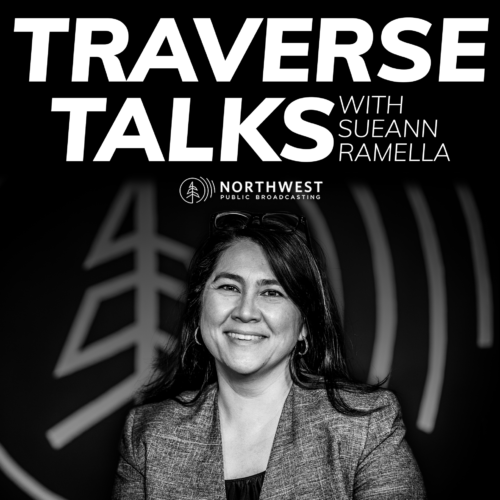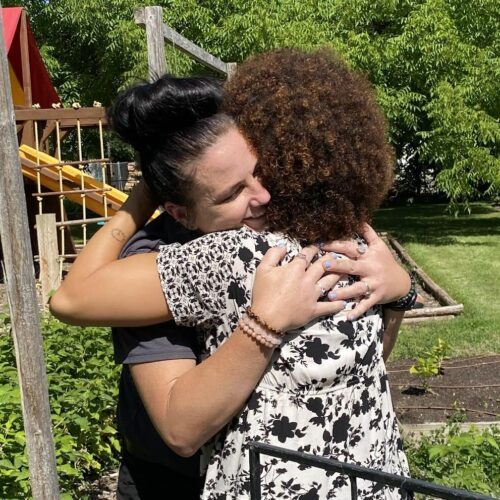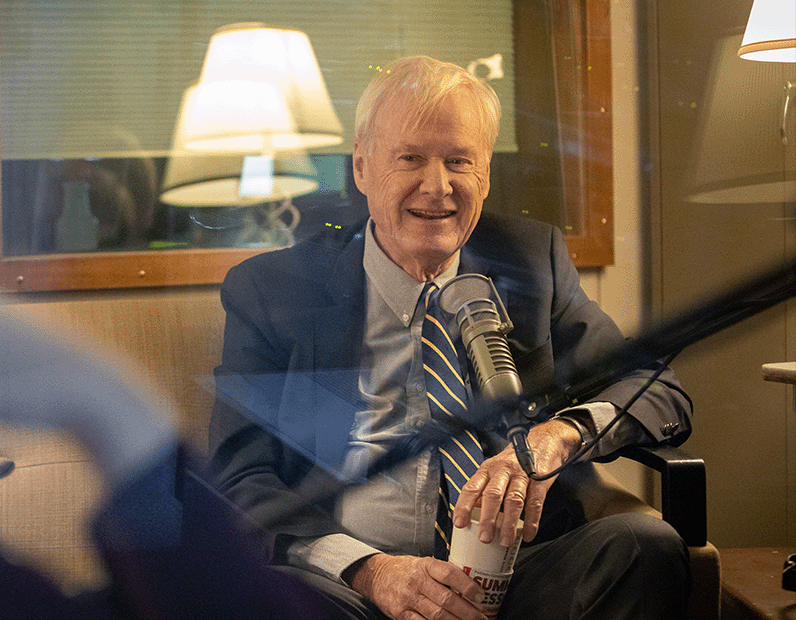
What’s What: Themes And Faces In American Politics – ‘Traverse Talks’ Episode 30 – With Political Commentator Chris Matthews
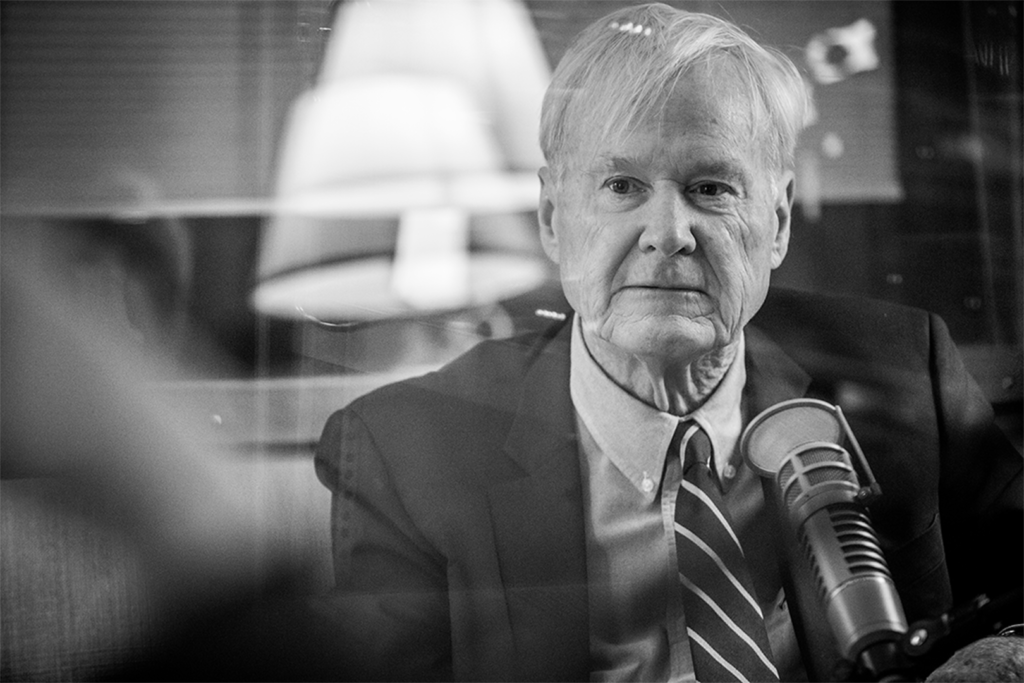
Chris Matthews, a self-described centrist, spent his lifetime in politics. A speechwriter during the Carter Administration in the ’70s, Chris later went on to write for the San Francisco Examiner, where he covered major events including the fall of the Berlin Wall and the Good Friday Peace Talks in Northern Ireland. He also hosted MSNBC’s political talk show “Hardball with Chris Matthews” for over 20 years. In this episode of Traverse Talks with Sueann Ramella, Chris draws from his experience to talk about the state of American politics today and how today’s issues will shape the future.
SUBSCRIBE: Spotify / Apple Podcasts / NPR One / YouTube
Listen
Conversation Highlights:
Winning, Losing And The Perception Of Trump:
Sueann Ramella: So, you are a hard-hitting journalist. You ask tough questions. What is it like when they do it to you?
Chris Matthews: Who does that?
Sueann: Well, I saw an interview where they were trying to corral you into talking about past mistakes and things and they were hard. And I just wondered, do you recognize the technique?
Chris: Well, first of all, there’s journalists and there’s other people. I think you’re referring to a moment that wasn’t really journalists, is my hunch. In fact, I’m almost positive that you’re talking about something that wasn’t a journalist.
Sueann: Great, explain that to our listener.
Chris: It’s not a question of commentators versus reporters. It’s a question [of] some people are in the business, but they’re not journalists. When I went out to sell a book, I did everything. I went on Bill Maher, who I love, I went on Stephen Colbert, who’s great, and I went on “The Today Show” and I went on “Meet the Press” show and I went on all the MSNBC shows I could get on.
Sueann: But you weren’t necessarily being interviewed by journalists. Because there are times where I have had reporters use it on me, the silence, when they ask a hard question and then they’re quiet.
Chris: My technique was more to interrupt ’em. Just keep talking. You know, I just kept running at them. I had Trump [on] and asked him about, “What do you do if a woman chooses to have an abortion?” And I kept pushing him because I knew he didn’t know what he was talking about. He had heard the term pro-life, but he didn’t, he certainly didn’t come from the pro-life culture. He’s transactional, let’s put it that way. So I realized this guy doesn’t know what he’s talking about. He’s playing to the conservatives, but he’s not one of them, really. He said, “Well, there needs to be some form of punishment.” He said that and I go, “What’s he talking about here?” You know, the most pro-life people in the world would never say that. Certainly the Catholic pro-life people would never say it. And then, of course, two hours later, he fixed it, he corrected it, but you know what? I wish he wasn’t what he is. I wish tomorrow morning or today he would get up and say, “You know a lot of this stuff I’ve said about the election is just dishonest and I shouldn’t be doing it. It’s not good for our country.” He shouldn’t be doing it. He shouldn’t be raising questions about our democracy, it’s our treasure. And to say things about it that he knows are not true – to say he won in Pennsylvania or he won in Arizona – he didn’t. There’s no evidence that he did. He is very reliably supportive of democracy if it serves him.
Sueann: Transactional.

Chris smiles and laughs while answering Sueann’s question.
Chris: And if it doesn’t serve him, then he’s against it. And I liked him before he ran for president. I had had him on the show a lot. He’s a character. And as long as he was a character, no harm. But when he got to be President of the United States and he started to go after our political system… I love democracy. I love the fact you can lose. I love concession speeches. On election night, what I look forward to is 11 o’clock at night, I wait for the guy or the woman who lost to stand before her people and tell those people he or she let them down, “I lost.” It’s what makes American democracy beautiful.
Sueann: Is it because of humility?
Chris: It’s because you win some, you lose some. Winston Churchill, probably the greatest leader of the 20th century – I counted it up once – a half dozen times he lost elections. Including right after he won the war in World War II. Right after he won, he was beaten and kicked out of office. You gotta live with it and that’s, you gotta be [as] accepting of the defeat as you are a victory. You have to buy that deal or don’t go into politics ’cause politics means in most cases, like in baseball, you’re gonna lose some, you know? A great baseball team loses a third of the games. I mean a great baseball team loses a third of the games. You know what I mean?
Sueann: Yeah.
Chris: I mean, you gotta get used to losing. Trump won’t accept it. That’s one thing I don’t understand. I think Republicans and Democrats – I don’t think the Democrats are more educated than the Republicans or even more honest or more patriotic, I think that’s a wash – but why are they going along with Trump, with his lies? That’s confounding. I’ve got a couple brothers who still vote for him and I go, “Oh my God.”
Sueann: Within my family, it’s the perception of wealth that they think that they can have.
Chris: If he was Joe nobody on the corner, you know, was looking for a job, they’d say. “Oh, what’s he know?” But then they see him with the beautiful wife and the beautiful kids and all the beautiful trappings, the gold tower he lives in like out of some sort of fantasy world. He lives there with her and he’s rich and-
Sueann: He must know things.
Chris: And he has Mar-a-Lago that looks like Versailles. He must be right. Or he says it, then that means I’m right. The average guy who’s driving a cab or working as a plumber doing a regular American job, he says, “Yeah, I may be wrong, but that guy’s right so I’m right.” But you’re right, I think you’re right, the idea of wealth denotes intelligence. Please, please slow down on that one.
Sueann: Right? But we keep doing it.
Chris: I don’t know if he’s gonna try again or not and I think if he tries again, [it’s] gonna be tough to beat him.
The Future Of The Un-hyphenated Democrat And What Makes A Good One:
Sueann: How do we continue to be this great nation with so many gray areas when we’ve been told there’s good and evil?
Chris: Well, my worry is do people have the guts to run for office anymore? Would Winston Churchill run for office today or would he have a talk show? I mean, it’s so much easier to do the talk show thing. I think we’re suffering from a lack of that aspiration, but I keep asking Democrats, “Who’s on the bench? Who’s coming up that [you’re] rooting for, somebody in their 40s, 30s? Who do you see as a potential president?” Silence. I think there are people that I would like to see run. I like Tim Ryan in Ohio, I like Sherrod Brown in Ohio, I like Amy Klobuchar. I think Buttigieg at some point’s gonna try again, but it’s not a big bench. There’s not a lot of people there that are willing to take some risks. You know, I don’t know big question marks there, Kamala Harris, big question marks. Just is she ready? Is anybody ready to walk into that?

Sueann reacts to Chris’s answer in agreement.
Sueann: Do you feel like it’s the ’60s in a way? Remember how much change was just-
Chris: Today, it’s more amorphous. There’s so much change going on.
Sueann: Well, we have to sit with all this change, think about the Midwest white guy and not the bubbling up of the different mixed folks.
Chris: That’s all a part of it. I’m talking about the politics and how it works, how they win. Republicans, this is gonna be their big three. Since the 1940s, they’ve had a strategy. The American voter can only think of three things going into a voting booth, they max out mentally. So make sure all three are about your opponent and make sure all three are negative. So back in the ’50s it was communism, Korea, the war, and corruption with Truman. And then it was amnesty and acid and abortion in the ’70s. What’s it this year? Cost of living, crime, culture. Just watch the ads. Two years ago, the tough elections around Philadelphia, which I keep an eye on, where I grew up, the Republican candidates for Congress held all their money to the last two weeks, put it all on television all about defund the police, and that’s all they did – defund the police, defund the police, defund – and they’re gonna do it again, you watch.
Sueann: Wow.
Chris: What do the Democrats got to say? Well, we’re trying to fight inflation, I think, we’re trying to deal with the crime, or will they even say that? And we’re working on border reform, immigration reform. It’s not a strong case.
Sueann: Why can’t the Democratic Party be as united like the Republican Party seems to be?
Chris: Well because the people on the left want the party to become a left-wing party. And the moderates like me don’t ’cause they think that’s wrong and they think that’s disastrous.
Sueann: Isn’t any extreme too much?
Chris: I don’t know the answer. I think a strong leader and I think, you know, Bill Clinton could do it, Barack Obama could do it. It takes real political talent to lead a center-left coalition.
Sueann: Who are [the Democrats] mentoring? I know you said-
Chris: I think it’s [Hakeem] Jeffries from New York. I think he’s the future.
Sueann: And what do they look for [in] somebody?
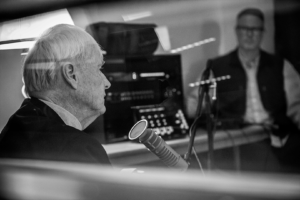
Chris answers questions from his spot within the studio booth.
Chris: I think he’s, well he’s African American and he’s a lawyer and he’s a smart guy obviously, and he’s – it’s very hard to say moderate ’cause that’ll kill you in the Democratic Party, you can’t call a guy a moderate – but I think he’s like Jim Clyburn, he’s a solid Democrat, unhyphenated Democrat. “I’m a Democrat, that’s what I am.” Like Biden or Pelosi. I’m a Democrat: I’m liberal on social issues, I’m reasonably liberal on other things, but I’m not a crazy person, I’m certainly not a socialist and I want it to work. I want to keep this party together.
Sueann: But what about the people? What are the goals for the people that they serve?
Chris: Well, they’re the ones that serve them. Tip O’Neill was a guy who spent 50 years looking out for the working class people of North Cambridge. He knew their problems – the alcoholic husband, the beater, the kids that weren’t able to go to school because of challenges, husbands that can’t find work, people that have health problems they can’t afford to deal with – he knew all that. I mean, that difference between Tip and Reagan, for example, is Reagan spent his life fighting to the top of the heap in Hollywood among well-off people. Tip spent his life looking to the needs of people who were not well off. They thought Harvard was almost so almost like, “What? That’s the elite. We’re not the elite.” That was a different world for those people, few miles away. And I think that’s what a good congressperson does. They spend enough time listening to people’s worries and real life, almost like a pastor, that they become more sympathetic. They become more- it’s, it’s a real vocation to have people call you up knowing that they called you out of desperation. If they knew somebody and they had somebody with clout, they would call them. And so you learn life and you become more of a liberal, a good liberal. That’s my kind of liberal, the ones that care. They’re not doctrinal about it, they just learn through life [that] people need help.
*Question and responses were edited for length and clarity.
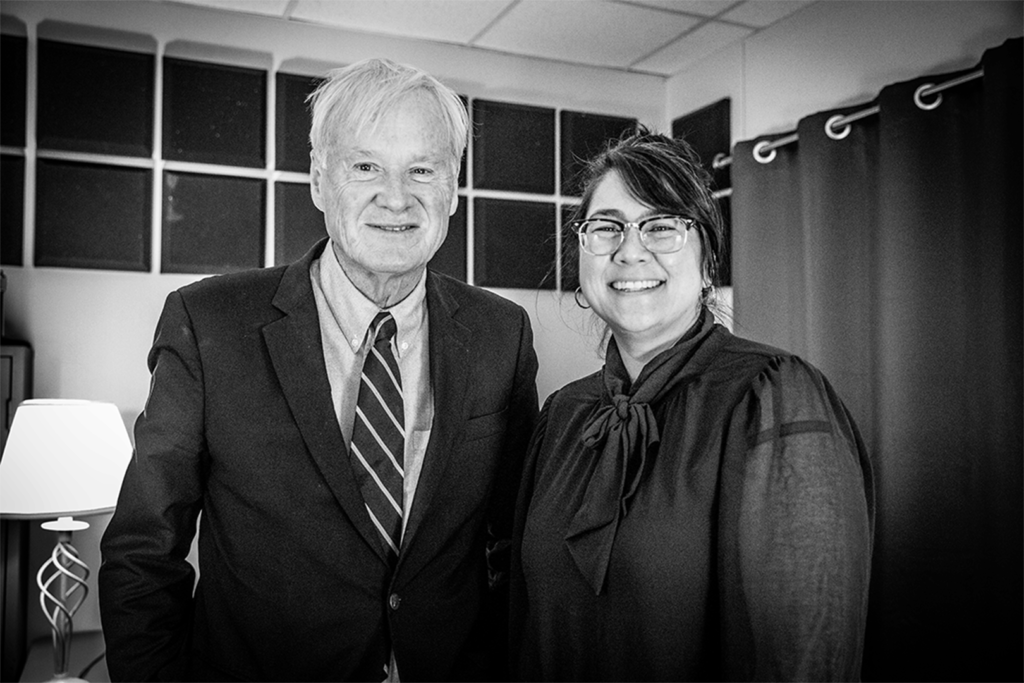
Related Stories:

Captive Returns Home: The Story Of Wetxuuwíitin – ‘Traverse Talks’ Episode 42 – With Chairman Samuel Penney
Photo of Sam Penney recording Traverse Talks at the Nez Perce National Historic Park on March 10, 2022. Imagine a stranger took your family’s heirlooms and then offered you an
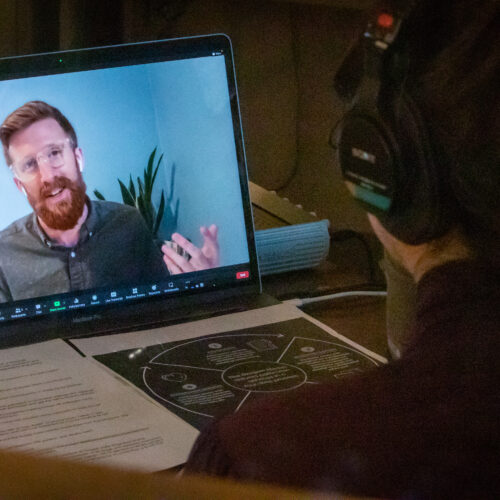
Psilocybin: Psychology, Policy and Possibilities – ‘Traverse Talks’ Episode 41 – With Sam Chapman
Sueann Ramella interviews Sam Chapman virtually on April 19, 2022. What do you really know about psilocybin, commonly known as magic mushrooms? Research on the substance has lagged behind in
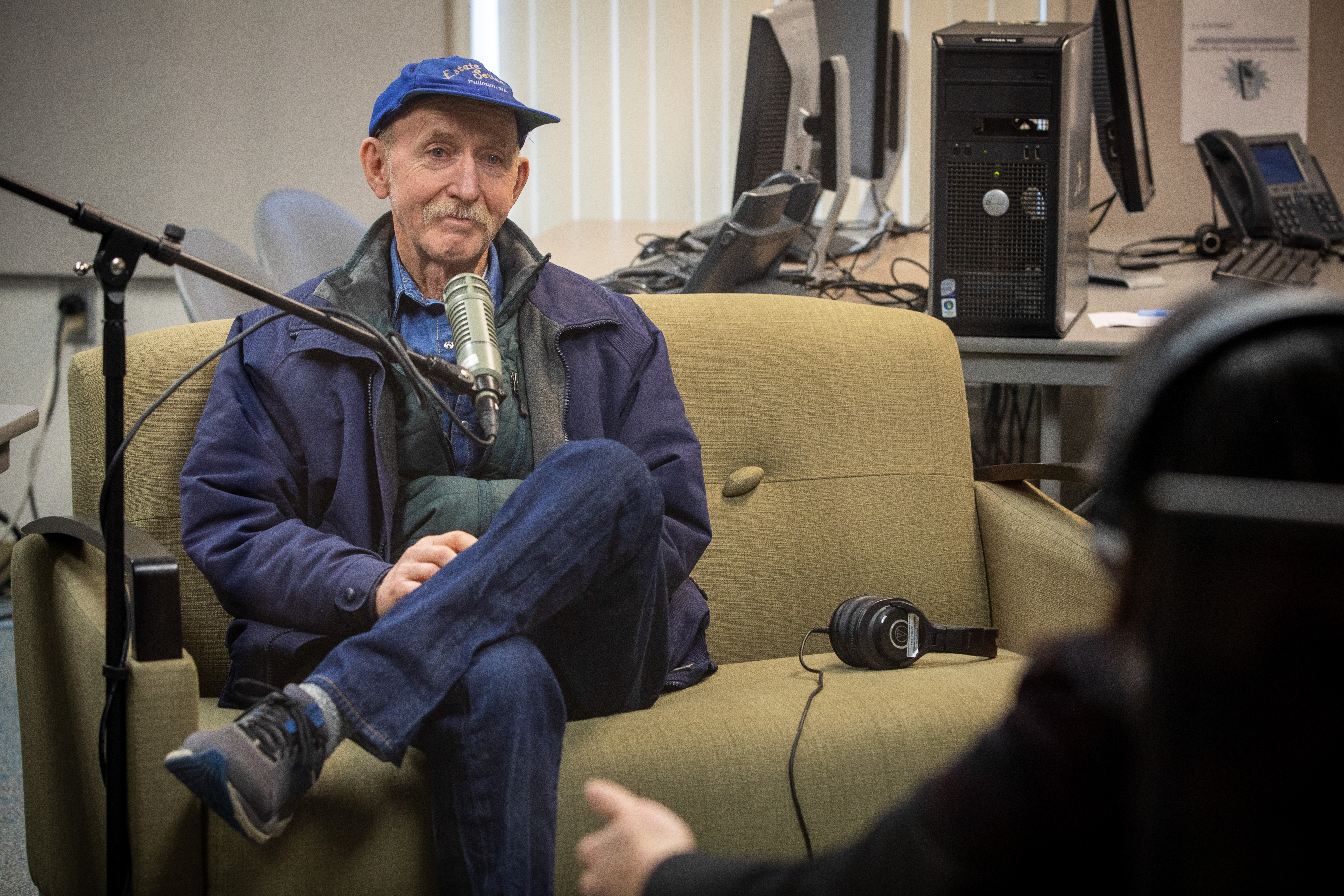
You Inherited A House Full Of Stuff. What’s Next? ‘Traverse Talks’ Episode 38 – With Estate Services Owner Rich Old
Rich Old recording this episode of Traverse Talks on March 3rd, 2022. Grieving the loss of a loved one is already hard enough. To make matters worse, many people have

